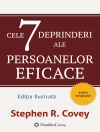Through parenting a child with a disability, a father discovers patience, acceptance, and unconditional love.
In 1987, Paul Austin and his wife Sally were newlyweds, excited about their future together and happily anticipating the birth of their first child. He was a medical student and she was a nurse.Everything changed the moment the doctor rushed their infant daughter from the room just after her birth, knowing instantly that something was wrong. Sarah had almond-shaped eyes, a single crease across her palm instead of three, and low-set ears—all of which suggested that the baby had Down syndrome.
Beginning on the day Sarah is born and ending when she is a young adult living in a group home, Beautiful Eyes is the story of a father’s journey toward acceptance of a child who is different. In a voice that is unflinchingly honest and unerringly compassionate, Austin chronicles his life with his daughter: watching her learn to walk and talk and form her own opinions, making decisions about her future, and navigating cultural assumptions and prejudices—all the while confronting, with poignancy and moving candor, his own limitations as her father.
It is Sarah herself, who, in her own coming of age and her own reconciling with her difference, teaches her father to understand her. Time and again, she surprises him: performing Lady Gaga’s 'Poker Face’ at a talent show; explaining how the word 'retarded’ is hurtful; reacting to the events of her life with a mixture of love, pain, and humor; and insisting on her own humanity in a world that questions it. As Sarah begins to blossom into herself, her father learns to look past his daughter’s disability and see her as the spirited, warmhearted, and uniquely wise person she is.
O autorze
Paul Austin, an emergency-room doctor, is the author of two memoirs: Something for the Pain and Beautiful Eyes. His essays have appeared in Creative Nonfiction, the Southeast Review, and the Gettysburg Review. He lives in Durham, North Carolina.












